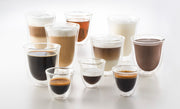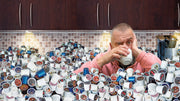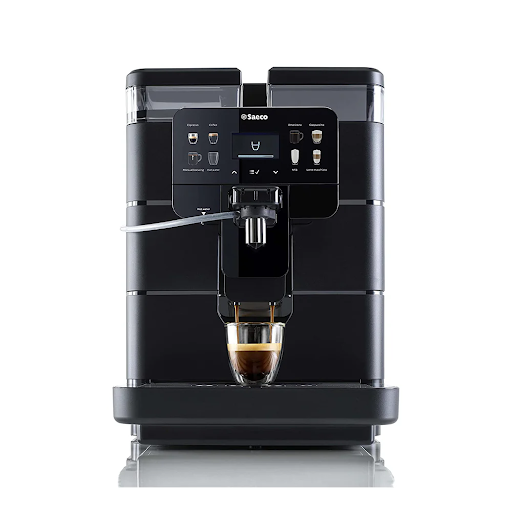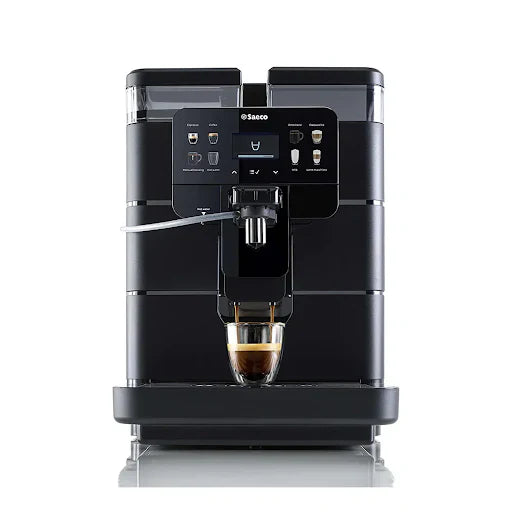How Does Hard Water Affect My Espresso and Espresso Machine?
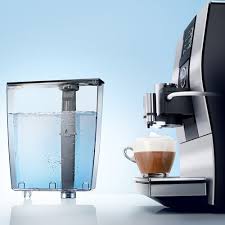
Have you ever tasted an espresso and thought to yourself: “This espresso is terrible? Why does it taste so awful?” When you consider that espresso is comprised of only two ingredients – water and coffee beans – the culprit in the inferior tasting espresso can only point to one of these. To have a great tasting espresso, there is absolutely no room for inferior quality of either coffee beans or water. And when you consider that an espresso is 98% water…well I can’t emphasize enough how water quality impacts taste. Water that has impurities will make the coffee taste bad.
There is one other factor that can contribute to a foul-tasting espresso and that is the state of your espresso machine. But the health of your machine is really impacted by the water used so it goes right back to one of the two ingredients. More on this later.
While we have a great deal of choice on the type of coffee beans we choose, we don’t always have control on the water available to us.
Isn't water all the same?
Water appears to be all the same – clear and flavorless comprised of two hydrogens and one oxygen. But there are many types of water: distilled, spring, filtered, and of course, tap water. There is also hard and soft water. One kind of water isn’t necessarily better than the other, but you need one kind over the other in specific situations. When it comes to making great tasting coffee, hard water can adversely affect the taste.
What Is Water Hard?
Hard water contains dissolved magnesium and calcium ions. Water picks up these minerals as it flows through rocks, rivers, wells or other water ways.
These minerals can be removed by boiling the water or distilling it.
You may be thinking that buying distilled water or using boiled water to make your coffee may be the solution, but it really isn’t. Distilled or boiled water will give you a flat tasting coffee because all the minerals have been stripped away through the distilling or boiling process.
Although a small amount of calcium carbonate is important to the flavor of coffee, too much gives the water an unpleasant aftertaste and prevents the coffee aromas from developing as they should. Hard water coffee is not desirable.
Then there’s spring water, right? Well purchasing spring water to use for your coffee making would be a waste of money. Why? Because spring water is “hard water”, and in many cases, harder than tap water. Remember water is considered hard because of the minerals it picks up. Water flowing through a spring picks up quite a bit of minerals. So, using spring water would not produce a great tasting coffee.
Let’s face it: the most cost-effective water to use in making our coffee is tap water. Not only is it cheaper, but it is readily available. Keep in mind that in addition to calcium, minerals, and fluorides, tap water in many areas contains traces of lead, copper, aluminum, and chlorine.
Water quality and water hardness vary from place to place and even depends on the time of day. Knowing the hardness of the water you are using is not only important for coffee taste, but also extremely important information for being able to maintain your machine properly. Remember we said earlier that the state of your machine may be contributing to foul-tasting coffee.
How Do I Know the Hardness of the Water I am Using?
According to the U.S. Department of Energy, 75% of homes in the U.S. have, at minimum, moderately hard water.
Moderately hard water = water with 60-125 mg magnesium carbonate/litre
Hard water = water with 125 -180 mg magnesium carbonate/litre
Very hard water= water with more than 180 mg magnesium carbonate /litre
You can test your water to determine its hardness. A hard water test kit is what you will need. Once you determine the hardness of your water, you will know how to proceed.
How Does Hard Water Affect My Espresso Machine?
Here is the explanation. When hard water is heated (it goes through boilers in your espresso machine), it creates limescale. Limescale can deposit itself in any and all components where water flows through. Pipes narrowed by limescale not only slow down the heating process, and therefore consume more energy, but may even cause the machine to break down completely. The limescale also has a negative effect on the taste of coffee itself.

Limescale in your espresso machine can only be removed by descaling your machine. The harder the water used in your machine, the greater frequency with which you should descale it.
Most machines allow you to set the water hardness level into the menu, so the descaling message appears with the correct frequency. User manuals will have instructions on how to program your machine for this message. If you don’t have access to your manual, be sure to contact an espresso machine expert to help you program your machine correctly.
For machines without the option to set the water hardness levels, use this guideline for a descaling schedule:
- low hardness - every 3 months
- medium hardness - every 2 months
- high hardness - every 6 weeks
- very high hardness - every 4 weeks
What Can I Do if I Am Using Hard Water?
Most manufactures understand that the quality of water will impact the taste of the espresso that their equipment can produce. For this reason, many espresso makers have developed hard water filters specifically designed for their equipment.
The hard water filters for espresso machines absorb harmful substances while retaining the right amounts of important fluorides, which help the coffee flavors to really develop. The optimum water quality makes every cup of coffee a full-bodied taste experience.

Three Key Steps to Achieving Great Tasting Espresso
Therefore, to achieve the best tasting espresso take the time to really know the kind of water you are using and follow these steps:
- Use a hard water testing kit to determine the level of hardness of your water.
- Use hard water filters in your espresso machine.
- Descale your espresso machine regularly to remove limescale.
Following each of these three steps and you will be sure to make a great tasting espresso each and every time.


